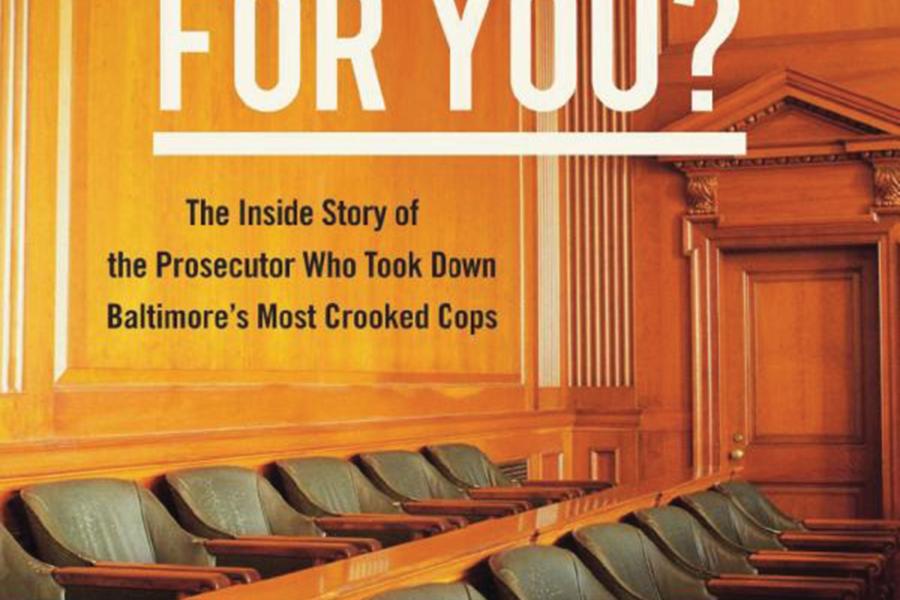Baltimore's Gun Trace Task Force made a mockery of the notion that police "protect and serve." This rogue squad of Baltimore City plainclothes detectives served themselves, cutting a wide swath of robbery and extortion across the metro area, stealing not only money and drugs but everything from watches to sneakers to cologne. Their shameful deeds, first exposed in 2017, spawned multiple books, with journalist-turned-screenwriter David Simon (of The Wire fame) turning one into an HBO miniseries.
Whereas most tell the tale from street level, Who Speaks for You? offers a unique perspective on these outlaw officers: from on high. Author Leo Wise, A&S '99, SAIS '00 (MA), was a federal prosecutor who helped take them down. His compelling book is presented in three sections—Investigation, Prosecution, and Trial—as it moves from painstaking procedure to courtroom drama. This was Wise's first foray into the world of street crime, as his previous claim to fame was taking on the white-collar fraudsters at Enron. No one on the investigative team knew how deep and wide the rot was when the theory emerged that a bad-apple officer might be shielding a drug dealer and the first wiretap was authorized.
Set against the group's laundry list of crimes, the charges of timesheet fraud seem mild, even though the fictions were egregious. Thanks to hours of phony overtime reports, most Task Force members were bringing home six-figure paychecks. But when the detectives indicated that they were working the streets looking for illegal guns, they may as well have been working out at the gym or frolicking on the beach in the Dominican Republic. Wise explains the importance of painting the detectives as ready liars in this regard as they built a larger case that would hinge on the testimony of their victims: drug dealers with criminal records whom jurists might be hesitant to trust.
Justice was served. Wise and his team amassed so much evidence that the bulk of the accused pleaded guilty. The pair, taking their chances with a jury trial, got lengthy sentences for their trouble. But citizen trust in law enforcement found new lows in a city already reeling from the 2015 death of Freddie Gray in police custody. To paraphrase Evelyn Waugh, news of this band of bent coppers hit Baltimore like a "blow upon a bruise."
Posted in Politics+Society








